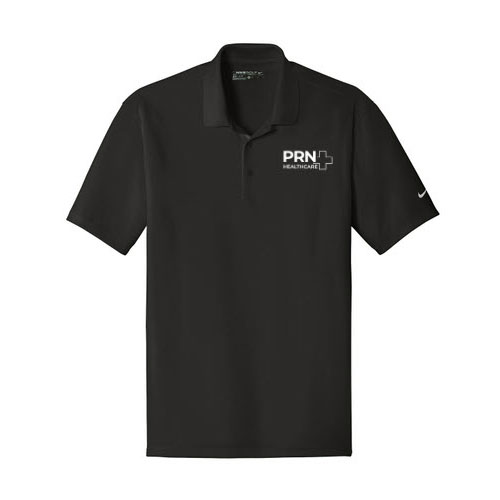You already have the experience, so do you really need the fancy degree to prove that you’re an awesome nurse? The thought of going back to school for your BSN may sound exciting, stressful, or perhaps both! In making your decision to get your BSN, it’s wise to ask for input from others that have done it. However, depending on where you are in your nursing career (and life in general), you ultimately need to decide for yourself if going back to school is worth the investment. Here are a few things to consider before you get started on your journey towards your BSN.
Benefits of a BSN
Naturally, thinking about going back to school can bring up some anxiety about how you’re going to pay for it. Luckily, research shows that RNs can earn about $3 more per hour once they upgrade to a BSN (2019 RN to BSN Salary, 2019). This extra boost in pay adds up quickly, and can make the cost of continuing your education worth it in the end. Additionally, once you have your degree in hand, you’ll be eligible for new job opportunities that are often higher paying as well. A BSN is often a requirement for leadership positions such as charge nurse, director of nursing, and other management-level nursing jobs (The Future of the Associate Degree in Nursing Program, n.d.).
Even if you plan to stay in your current position, in the future, you may find that you’ll need to have a BSN regardless. A 2010 report by the Institute of Medicine recommends that at least 80% of practicing nurses have a BSN degree by 2020 (Schneider, 2016). That’s not very far away! Similarly, hospitals aiming for Magnet Recognition are encouraging nurses to obtain their BSN by implementing required levels of education for certain positions or units (May, 2017). Therefore, nurses employed at Magnet facilities risk facing career limitations if they haven’t yet obtained a BSN. If you’ve been on the fence about going back to school, now may be a good time to look into your employer’s stance on the BSN, as well as the standards of any facilities you desire to work at in the future.
Do Your Research
Don’t jump into a BSN program without knowing exactly what you’re getting into. First, you’ll want to make sure the program is fully accredited. Be especially skeptical of online BSN programs if you aren’t familiar with the university. If you’re not sure where to start your search, ask your colleagues what they recommend. After you’ve narrowed down your choices, you could also see if you can make a connection with an alumni of the program to get their honest opinion.
Before you commit to a BSN program, it’s important to make sure you’ve considered all the costs that will be involved. Not only will you need to pay for tuition, but it’s also possible that you’ll have to pay for books, computer equipment, or housing. Understand what your options are for funding your education before you take the leap. It’s wise to see if your current employer has a tuition assistance program, or if you qualify for any scholarships.
Online or On-Campus?
When choosing a BSN program, it’s important to keep your lifestyle and learning preferences in mind. Completing your BSN online offers you the ability to study any place, any time. However, online learning isn’t as personalized as a traditional classroom, and you’ll need some serious self-motivation to work through the course material on your own. An on-campus education provides a more collaborative learning experience. You may also get access to unique networking opportunities and on-campus nursing career fairs. However, the downfalls of an on-campus program include potentially higher costs, a less flexible schedule, and a more limited selection of schools depending on where you live.
It can be tricky to pursue your education while keeping up with the rest of your priorities. Especially if you plan to continue working while you go for your BSN, striking a balance between your school, work, and day-to-day responsibilities may seem like a daunting task. Working per diem while you’re in school can be a great option to alleviate the stress of maintaining a full-time work schedule, while still affording you the opportunity to continue working. If you’re looking to keep your regular job during school, you can also start to chip away at those tuition bills by picking up extra per diem shifts during your breaks!
Final Thoughts
You’re never too young or too old to go back to school for your BSN! Even if you’re already an experienced nurse, continuing your education can have numerous benefits for your career. In fact, it may even add a little extra spark to your passion for nursing! If going back to school feels right, there are so many doors that a BSN can open for your career.
Conversing about nursing…
Sources
2019 RN to BSN Salary – Learn why BSN is Worth it Financially. Retrieved October 10, 2019, from https://www.nursingprocess.org/rn-to-bsn-salary/.
May, C. (2017, December 19). Forces of Excellence: Magnet designation and the BSN or MSN educational requirement for nurse managers. Retrieved November 5, 2019, from http://nursing.buffalo.edu/news-events/nurses-report/magnet-hospital-recognition-bsn-msn.html.
Schneider, A. (2016). Driving Factors Behind the 80% BSN by 2020 Initiative. Retrieved November 5, 2019, from https://www.rn.com/headlines-in-health/driving-factors-behind-the-80-percent-bsn-by-2020-initiative/.
The Future of the Associate Degree in Nursing Program. (n.d.). Retrieved November 5, 2019, from https://www.nursinglicensure.org/articles/adn-program-future.html.




